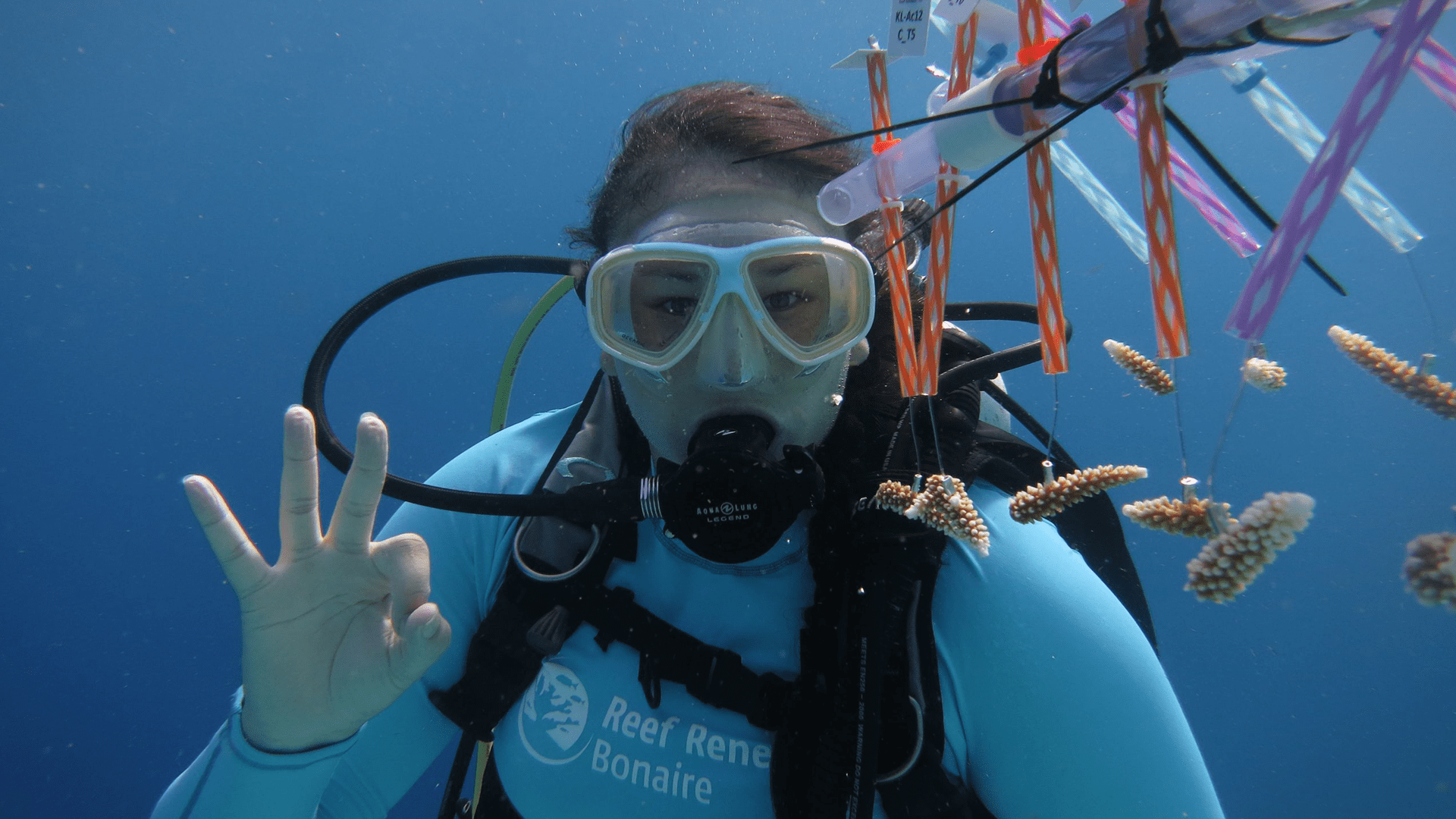As a child, the ocean was Serena Hackerott’s playground. With both her parents being avid scuba divers, Hackerott spent her childhood snorkeling and scuba diving around the world, experiencing the magic of coral reefs first hand.
“Coral reefs became my home away from home,” Hackerott said. “I knew from an early age that I would pursue a career focused on understanding and protecting these beautiful and complex ecosystems.”
Today, the Ph.D. candidate in the FIU Institute of Environment spends her days saving these threatened habitats. Working with Jose Eirin-Lopez in his Environmental Epigenetics Lab, Hackerott studies how corals respond to environmental stress and focuses on coral conservation and restoration. “Coral reefs have declined globally and, if corals are unable to keep pace with the changing climate, many reefs are predicted to disappear within the next few decades,” she said.
Corals can be resilient. They have an “environmental memory” which allows them to remember prior stressful experiences. Remembering these conditions and their responses to them helps corals adapt when future stressful conditions arise. This phenomenon, called “stress hardening,” is the main focus of Hackerott’s research.
This February, Hackerott was awarded a scholarship for her coral research from Wave of Change, an Iberostar movement dedicated to protecting oceans and leading responsible tourism. The “Wave of Change Rebuilding Coral Reefs Scholarship” provides four recipients with up to $5,000 each for a total of $20,000. Hackerott was selected as the “Confronting Global Warming- Building Resilience” grant recipient.
“The priorities of the scholarship directly aligned with the overall goals of my research,” said Hackerott. “My dissertation work combines ecological, physiological, and epigenetic research, along with strong collaborations with coral restoration practitioners, for the goal of enhancing coral conservation and restoration outcomes. This scholarship will support an upcoming project that will assess coral stress hardening as a strategy for increasing coral resilience within a coral restoration context.”
Photo by Richard Howard
The scholarship will allow Hackerott to transplant staghorn corals between two restoration sites in Bonaire, a small island in the Dutch Caribbean. The project will be completed in collaboration with Reef Renewal Foundation Bonaire. Hackerott will observe the corals to assess their environmental memory in an existing restoration environment.
“Stress hardening has the potential to increase the long-term success of coral restoration efforts, particularly if exposure to stressful conditions in coral nurseries can increase coral stress tolerance and survival after outplanting,” Hackerott said.
This project will help scientists better understand the role that environmental history plays in coral resilience. It will also help inform restoration practitioners about what nursery site conditions are best for coral stress tolerance and for successful coral outplanting.
Find out more about the Wave of Change Rebuilding Coral Reefs scholarship and learn about the four scholarship recipients or dive deeper into the FIU Institute of Environment’s Environmental Epigenetics Lab research.








